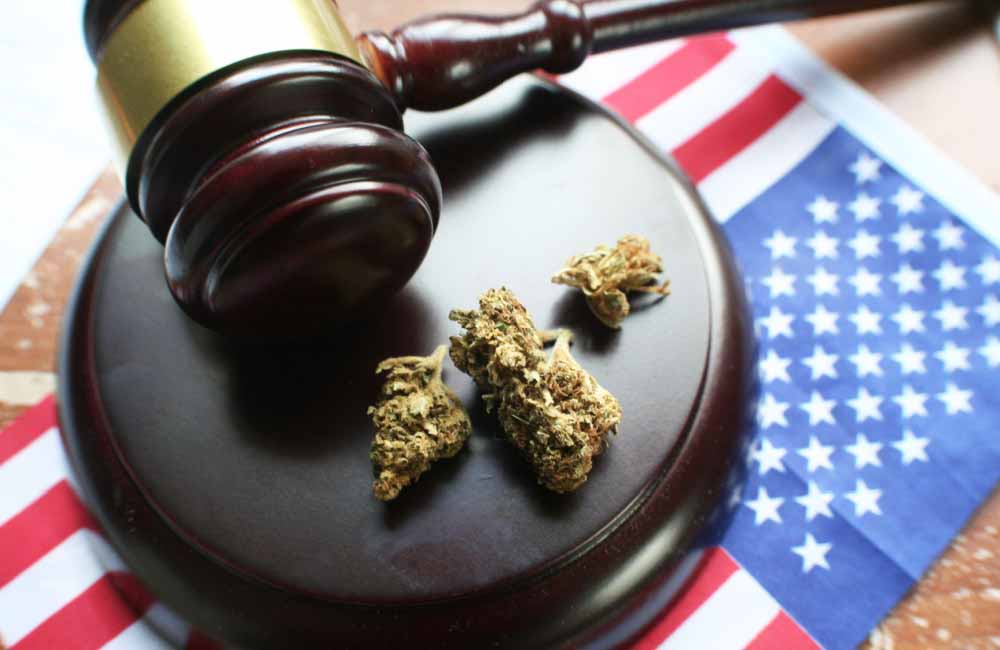What Rescheduling of Cannabis Means for the Consumer and the Cannabis Industry
The proposed rescheduling of cannabis from a Schedule I to a Schedule II drug will have a significant impact on both cannabis consumers and the cannabis industry. While the proposal must still get through a series of regulatory steps, people already have speculated on what the change could mean for legal cannabis in the United States.
The following looks at some of the latest ideas emerging about the rescheduling of cannabis. But it’s important to first understand where the issue stands. It’s also important to know that rescheduling is not the same as making cannabis legal at the federal level, an issue that the U.S. Congress is unlikely to address anytime soon.
What is Happening With the Rescheduling of Cannabis?
Attorney General Merrick Garland recently proposed easing restrictions on cannabis, marking a significant shift in federal drug policy that could expand medicinal access and enhance the cannabis industry in states where it is legal.
Although the proposal would not legalize marijuana at the federal level, it represents a landmark move that could be politically advantageous for President Joe Biden as he seeks reelection and aims to address racial and criminal justice disparities stemming from the nation’s prolonged war on drugs, according to the Washington Post.
The Justice Department has officially submitted the recommendation to the White House. This follows the Drug Enforcement Administration’s approval of a U.S. Health and Human Services recommended that marijuana be reclassified.
The proposal would shift cannabis from its current listing as a Schedule I drug, along with drugs such as heroin and LSD, to less tightly regulated Schedule III status, which includes drugs such as ketamine and some anabolic steroids. Unlike Schedule I status, federal rules allow some medical uses of Schedule III drugs. The proposal faces a lengthy regulatory process that may not be completed until after the presidential election.
The Impact of Rescheduling Cannabis to Schedule III Status
Reclassifying cannabis from Schedule I to Schedule III at the federal level could have several significant impacts on consumers and the cannabis industry.
Access to banking services. Rescheduling could lead to businesses in the cannabis industry gaining greater access to banking services, something a majority of Americans support. Currently, because cannabis remains a Schedule I drug, many banks are hesitant to serve cannabis-related businesses due to the potential legal risks. Reclassification to Schedule III would reduce these risks, possibly leading to more financial services available to cannabis businesses, which could in turn enhance consumer experience through more payment options and potentially lower prices due to reduced business expenses.
Medical research. Schedule III classification would facilitate more research into cannabis due to less stringent restrictions compared to Schedule I. This could lead to a better understanding of its medicinal benefits, improved products, and possibly new pharmaceutical applications, which would benefit medical consumers.
Tax implications. Cannabis businesses could see changes in tax burdens. Currently, under Section 280E of the Internal Revenue Code, businesses dealing with Schedule I substances cannot deduct ordinary business expenses. Reclassification could allow these businesses to make such deductions, potentially lowering the cost of cannabis products for consumers.
Legal risks and penalties. Consumers would likely face lower legal risks and penalties for possession and use where it is allowed. Schedule III substances are considered to have a lower potential for abuse compared to Schedule I drugs, which might lead to more lenient penalties for violations related to possession and use, depending on state laws.
Prescription practices. Moving cannabis to Schedule III could potentially allow doctors to prescribe it more freely, improving access for patients who use cannabis for medical reasons.
Reclassification Could Also Lead to More States Legalizing Cannabis
Cannabis is currently legal in 38 states, with 24 of those states legalizing recreational use of cannabis. As the U.S. government considers reclassifying marijuana to a lower risk category, the immediate effects might be minimal in the 12 states that have yet to legalize cannabis for broad medical or recreational use by adults.
However, supporters of marijuana legalization are optimistic that a change in federal regulations could eventually influence the perspectives — and decisions — of state lawmakers who have been hesitant to legalize cannabis.
“It’s quite common for state legislators to express to me their conditional support, contingent on its legality under federal law,” Matthew Schweich, executive director of the Marijuana Policy Project, an organization advocating for the legalization of cannabis, told PBS.
While reclassifying marijuana wouldn’t legalize it, “it represents a historic and significant shift at the federal level that I believe will make state lawmakers more comfortable supporting legislation,” Schweich added.




